📣 For more lifestyle news, click here to join our WhatsApp Channel and also follow us on Instagram
EXCLUSIVE | Pooja Bhatt on why she hates the word ‘feminist’, sexual harassment and her new concept for a women empowering film
Pooja Bhatt, the eldest daughter of father-filmmaker Mahesh Bhatt and mother Kiran Bhatt, is not afraid to call a spade a spade, and that somehow reminds you of her strong genetic connection.
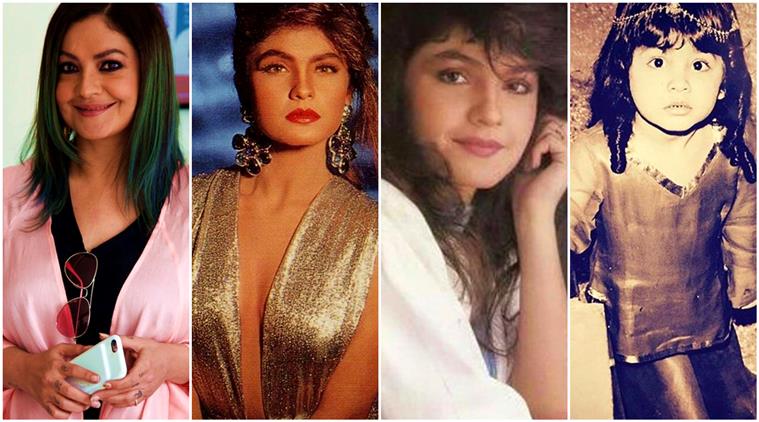 Pooja Bhatt, who is still remembered for her role in ‘Dil Hai Ki Maanta Nahin’ in 1991, opened up on alcohol, addiction, love, loss, family, feminism and women empowerment. (Source: Pooja Bhatt/Facebook)
Pooja Bhatt, who is still remembered for her role in ‘Dil Hai Ki Maanta Nahin’ in 1991, opened up on alcohol, addiction, love, loss, family, feminism and women empowerment. (Source: Pooja Bhatt/Facebook)
Talking to Pooja Bhatt can be rather intimidating. Call it the wisdom from her bag of experiences or the undying conviction for what she believes in, she has a penchant to catch you off guard with her honest, frank and candid answers. The eldest daughter of filmmaker Mahesh Bhatt and mother Kiran Bhatt, is not afraid to call a spade a spade, and that somehow reminds you of her strong genetic connection.
Looking lovely in her black ensemble accented with a soft pink satin shrug, the 45-year-old had a lot more to put into words in an exclusive interview with indianexpress.com. Complimenting her for the faded bluish-green colour of her tresses, we begin the tête-à-tête.
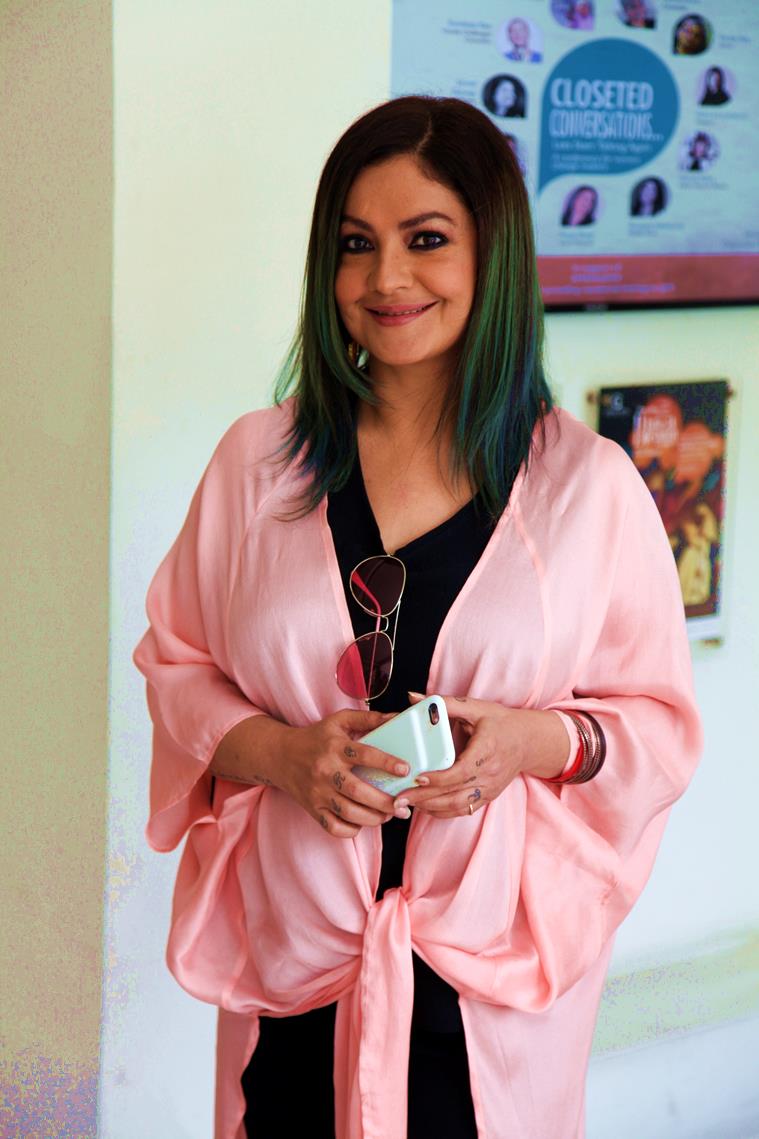 Pretty in peach — Pooja Bhatt at Closeted Conversations.
Pretty in peach — Pooja Bhatt at Closeted Conversations.
You started working quite early, and starred in your first film, Daddy, when you were 17. Did you tell them you wanted to start acting or did they already know that you would plunge into that direction?
I did Daddy when I was 17-years-old. My father, Mahesh Bhatt directed the movie and he cast me. I did not have to tell my parents, they were quite aware. It was not like someone else cast me, but my dad offered me the film.
When you started working, when was the first time that you saw bias or gender discrimination, or came across something that really affected you?
It’s not about seeing something, it’s about being brought up in an environment where you’re always made to believe that you’re not inferior because you’re a woman. So, when you grow up in that atmosphere and step out to see a different mindset around you, it infuriates you. It’s unfortunate — that people need a trigger to believe in equality or to champion the cause of women rights. You don’t need a trigger for that, it is inbuilt in you, ingrained in you. If you’re born to people with prejudices, then you grow up with prejudices and are able to face the world with your own IQ and intellect.
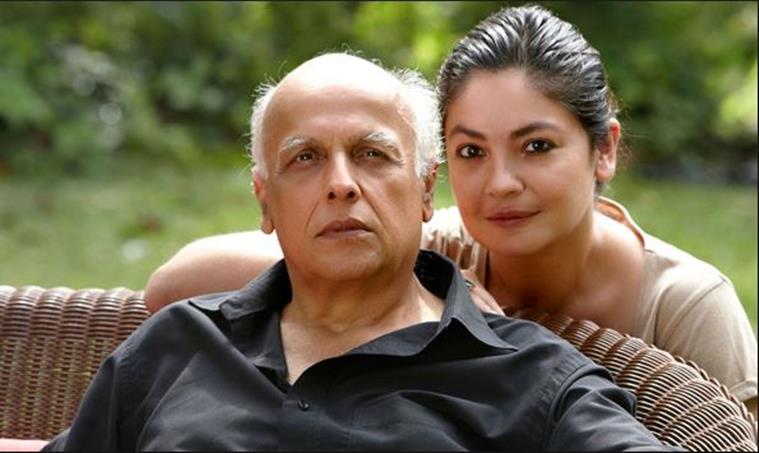 The father-daughter duo: Pooja Bhatt and Mahesh Bhatt! (Source: File Photo)
The father-daughter duo: Pooja Bhatt and Mahesh Bhatt! (Source: File Photo)
I still have a mind of my own, and I’m not going to fall for those prejudices. Very often, unfortunately, people may believe something, but they go along with a group of people because they don’t have the courage to stand alone or stand up for themselves.
Ideally, it’s something taught to us much before… when we are in the womb. If you bring a child into the world, knowing that you’ll give this child a fair opportunity, whether it’s a girl or a boy, then I think you’ve already won one-half of the battle for the child who is to be born. But, if you are born into a world that already believes you are a failure, because you are born a girl, then you’ve got to fight with the world anyway. It’s terrible when you are defeated in your own home.
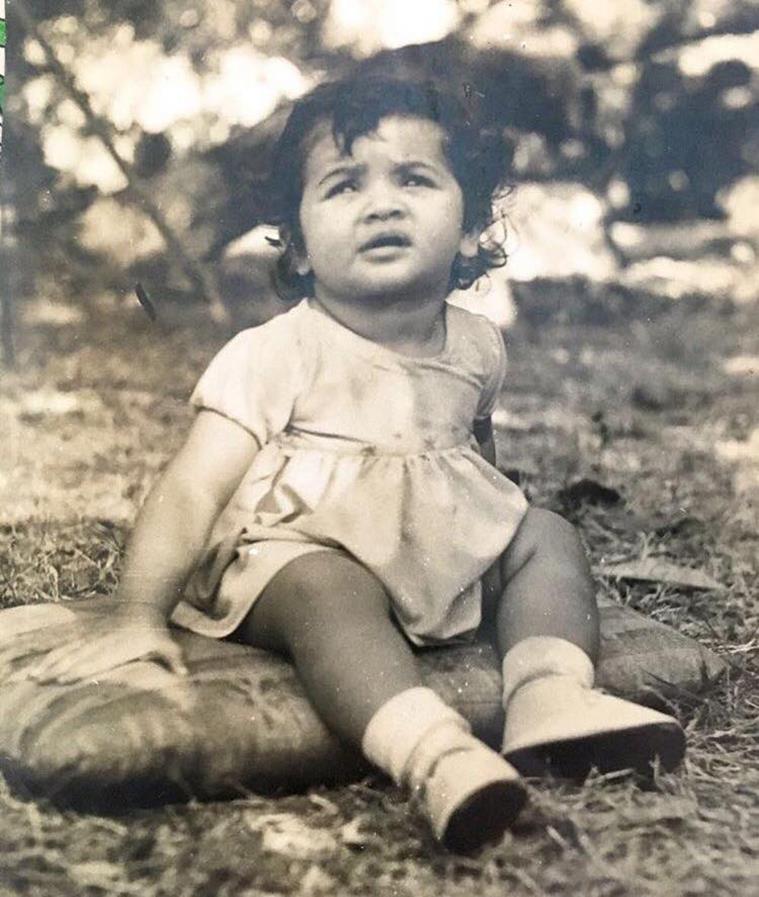 Pooja Bhatt caught in a candid childhood moment. (Source: Mahesh Bhatt/Facebook)
Pooja Bhatt caught in a candid childhood moment. (Source: Mahesh Bhatt/Facebook)
Not all of us are as privileged. What about the women in the village or in orthodox families, how can they break out from the system?
When I see someone like Revolver Dadi speaking, it just proves that you don’t have to be born in a swanky, posh area to be able to call yourself forward thinking, or to set out to do what you want to, or to call yourself a feminist.
I hate the term ‘feminist’ to begin with. I mean, what is a feminist? What people are raising slogans for, I feel, it is a part of our existence.
For example, I stopped drinking alcohol. Today is 90 days that I have not had a drink. But, for me, it’s still 90 days. So, my next aim is to stop counting. Then it will become as natural for me as breathing. The day I stop counting is the day I would be absolutely free from this. So, it’s important that as women we tell ourselves: we are half of the humanity and unfortunately or fortunately, we rely too much on other people for our validation. You want your parent’s approval, your boyfriend’s approval, your child’s approval…it doesn’t end. What about you?
I’ve been married for 12 years, and it was a wonderful marriage while it lasted, Then I decided, at the point where it was tumbling, to make a healthy break.
And I stood by the choice I made. But, I was able to make that decision because somewhere along the line, I was also very independent — financially, and in my head.
Some people don’t have the luxury to see a future without the man as they are dependent on him. That’s because they put their education or priorities aside to be mothers or wives to somebody. God forbid, you might be married to the most wonderful man in the world, tomorrow he might drop dead, how will you move out ahead with your young children and get a job? So, you better have a backup plan, baby… that’s what my mother always told me!
My mother is a dropout, and she met my father when they were very young. The ‘Aashiqui’ love story is actually my parents’ love story. She was in school, and he saw this beautiful woman across the wall and jumped across… and he got caught. So, she got thrown out. So, they were like these kids who were told, ‘Okay you want to romance, now take the responsibility.’ They got married really young. She did not have the luxury of completing her education. But my mother has got an intuitive intelligence.
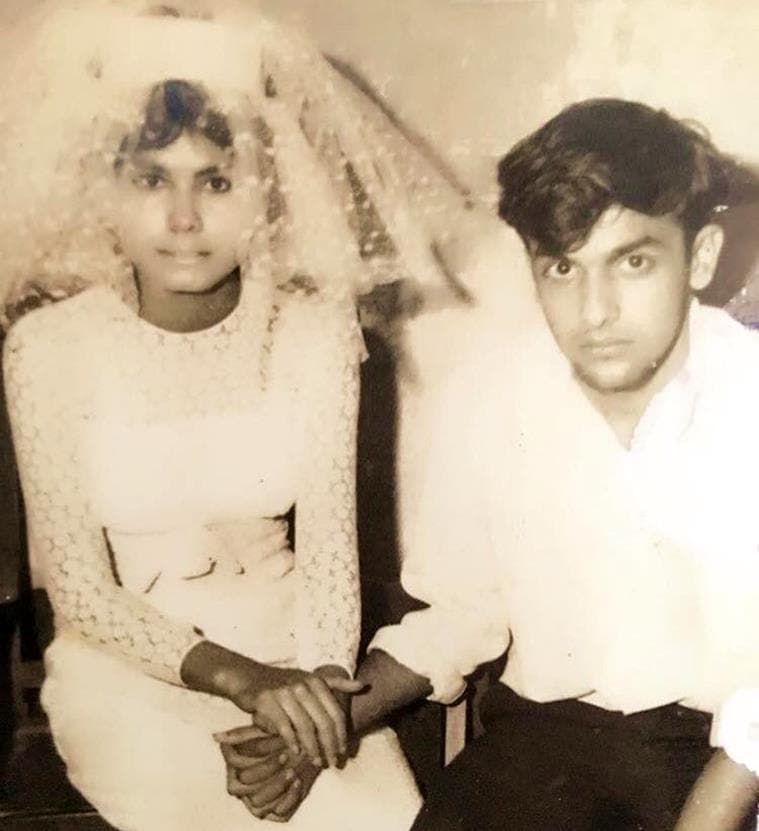 Pooja Bhatt’s parents —Mahesh Bhatt and Kiran Bhatt, aka Loraine Bright (Source: Pooja Bhatt/Facebook)
Pooja Bhatt’s parents —Mahesh Bhatt and Kiran Bhatt, aka Loraine Bright (Source: Pooja Bhatt/Facebook)
And I believe that, similarly, women in villages have so much more wisdom than someone who has a bachelor’s or a PhD degree. They have wisdom, not artificial intelligence. If you have a good memory, you can memorise the pages of the text book or a poetry and recite it, but wo aapki toh hai nahi naa (it’s not yours). So, I think we must look to those women for strength — they have their babies silently, they go to the fields the next day, they deal with the husband, in most cases, their husbands beat them up and still, they run a house with complete efficiency.
If we look into the heartland of India, the real wisdom exists there. I think, somewhere, it is the modern woman, who has really got herself into an ordeal – in the quest for supposed independence. Are we really independent or have we just bought ourselves a more expensive and a good looking cage?
That is so true. Maybe we are just falling into that trap.
Yes, I’ve gained more talking to an uneducated woman than I have, sometimes, talking to an educated one. It’s about how you look at life, and how you see it.
Mira Kapoor went on to comment on feminism and shared her own experience of having given birth to a baby and how motherhood is for her. But after her statements, many women came out to bash her and disagreed with her opinion. What do you think about the entire fiasco?
I don’t know her, personally or individually. And I’m not aware of this ruckus because I was in Goa for a blissful vacation. But, I feel — to each, their own. Everyone’s entitled to their own opinions, and if you want to opine, then you must allow the other person to opine back and take it on your chin. So, she said something that she believed in, then she should stick to what she believes in. And if she’s shaky about what she believes, then I guess, people’s opinions will make her rethink her opinion.
Women have faced division in workplaces for ages. But, the recent controversy surrounding the TVF founder — when women came out to write blogs about how they were sexually harassed — made quite a revelation. Twinkle Khanna also spoke on the issue, what do you think women should do when they are in such a situation?
Well, most women in this country have gone through some kind of sexual discrimination, or I would say, been abused. Abuse is not necessarily physical… somebody could be absolutely damaging in the way they look at you. I know people who have endured both, and it’s not like you’re comparing one against the other, but, I think you should stand up for yourself, no matter who you are.
Unfortunately, most of the abuse that happens in India takes place in the subcontinent within the family itself. This is a proven fact. This is what records tell you, if you read up on child abuse especially. It is quite often an uncle or an aunt, or a distant relative, or a cousin, or a servant, or somebody who is considered safe takes advantage of the proximity that they have with the child, and abuses them.
We tend to have this terrible habit where we tell our children to not talk about it. We say ki aise baat mat karo. Kisine aapko rape kia hai toh bahar mat bolo kyonki aap se koi shaadi nahi karega. Aapka pati aapko peet raha hai, jhel lo, ye aapka kismat hai. Kahaan aa jaoge wapas? Baap ke ghar mein aa jaoge? Nahi, nahi, hum toh nahi le payenge aapko. Humne already aapki shaadi mein itne paise kharch kiye hain. Abhi humaare paas yeh nahi hai, woh nahi hai, abhi chhoti beti ki shaadi karni hai… You know what I’m trying to say, right? So, unfortunately, you have to, depending on where you are in life, have to deal with it.
A woman who is living in a middle class home with her husband is not any less than a woman who is sitting in a mansion, wearing pearls and diamonds, but, has a loveless marriage. Slavery comes in very attractive packages, so you have to decide in life, what your priorities are, and how much you are willing to bend and for what. It depends on what you’re going to take and what you’re not going to take. Women are very resilient people, but the problem is that we accept pain much easier than we accept joy.
Will we see a movie made by you for women or to highlight women empowerment?
Well, I’m very keen to make the subject on women empowerment — it’s a concept called ‘O’, it’s about 12 women and 12 stories about multiple orgasms. I want to tell stories of Indian women and their sexual lives. People will think, ‘Oh my god, it’s about sex.’ It’s not about sex, it’s a deeply political body of work. If you look at Mahasweta Devi, who I was inspired by, she did a book called Breast Stories on three women from three different kind of social struggles, all concerned with the breast. How do you know you are a woman? To know a woman, you must know them sexually. We have a continent within this country, and the more we tell stories, the better. Like the Vagina Monologue stories. So, I am looking forward to go ahead with it.
Will we see you working with Alia Bhatt anytime soon?
The subject has to be right for that. It’s not like we talk at home, that we need to make a film together. So, whenever the opportunity arises, we’ll do a movie!
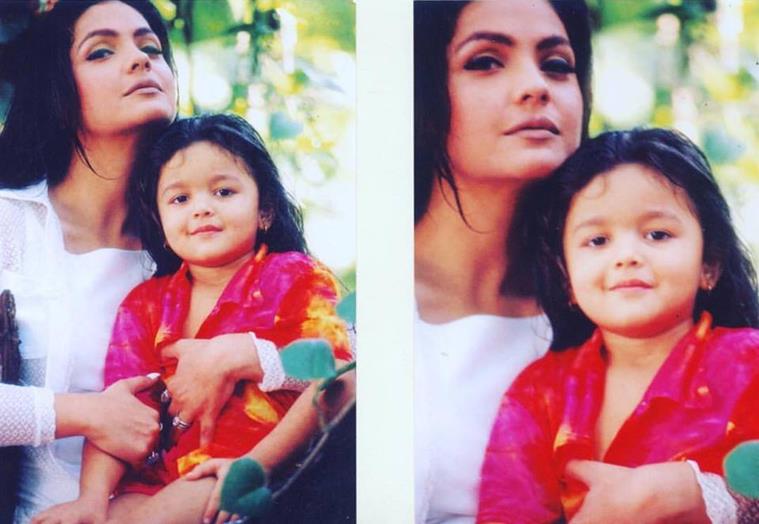 Pooja Bhatt holding Alia Bhatt in her arms. (Source: Pooja Bhatt/Facebook)
Pooja Bhatt holding Alia Bhatt in her arms. (Source: Pooja Bhatt/Facebook)
📣 For more lifestyle news, click here to join our WhatsApp Channel and also follow us on Instagram


- 01
- 02
- 03
- 04
- 05

























